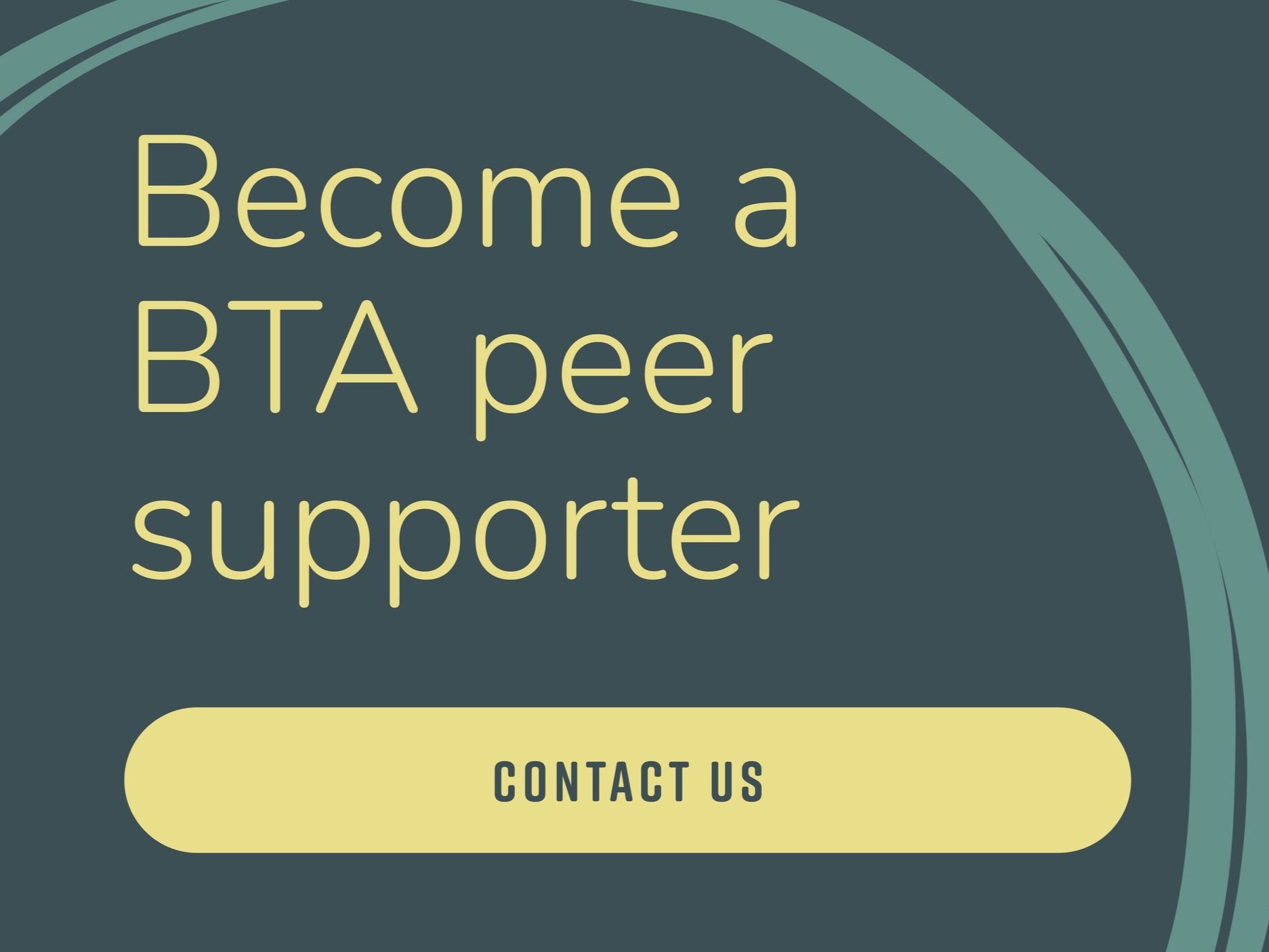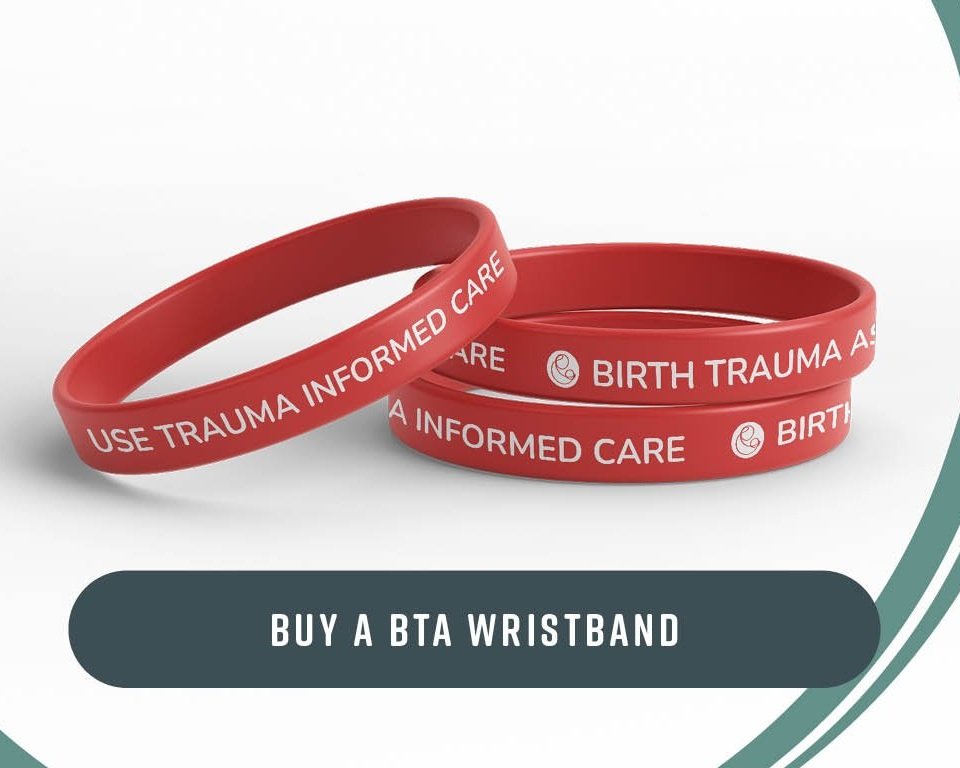
help from professionals
If your symptoms are affecting your ability to lead a normal life, you might want to consider professional counselling. But what types of counselling are best?
There are two therapies that work well in treating trauma symptoms:
Trauma-focused CBT
Eye movement desensitisation and reprocessing (EMDR)
Both treatments are recommended by the National Institute of Health and Care Excellence (NICE).
For a full explanation of how to access counselling and what it involves, click on the link below:
How do I access therapy to help me recover from my birth trauma?
When you experience trauma symptoms, it’s as if you’re still stuck in the middle of the trauma. You feel on high alert, as if something terrible is going to happen. Or a smell or a noise takes you right back to the moment of the trauma, and you relive it all over again. It’s less like a memory and more like an event that is still happening.
The two treatments both try and move the experience of trauma away from short-term memory into long-term memory. The trauma becomes like other long-term memories – as if it’s safely stored away in a cupboard rather than something that you’re living through time and time again.
Normally you’ll have between six and twelve sessions. These can feel quite intense because they involve reliving aspects of the trauma. The idea is that by the end the traumatic event becomes “boring” – you can recall it without feeling emotional about it.
How do therapies work?
Trauma-focused CBT: You and your therapist will go over the traumatic events, look at your perceptions and thought processes, and use relaxation techniques to try to create a safe environment in which you can process particularly difficult or traumatic aspects of your birth. CBT usually involves six to twelve one-hour sessions over the course of two or three months.
EMDR: Your therapist will ask you to think about the trauma while following a moving object, such as a finger, with your eye, or listening to taps and tones through headphones, played alternately in each ear. The treatment follows a set structure, and a typical course consists of six to twelve one-hour sessions, again over the course of two or three months.
How do I access the treatments?
You can either access them on the NHS or privately. If you opt for a private therapist, it’s always best to find someone who is registered with a professional body, such as the British Association of Counsellors and Psychotherapists (BACP).
NHS: If you’re in England, you can self-refer to mental health services through your local Talking Therapies service. (This used to be known as Improving Access to Psychological Therapies, or IAPT.) Just google the name of your local area and Talking Therapies to find it. Outside England, you can ask your GP or health visitor for a referral. (You can do this in England too, if you prefer.)
Privately: You can search on the register of the British Association of Counsellors and Psychotherapists, and on the list of counsellors and therapists who advertise on our website.
Charges for a private therapist tend to range from £40 to £150 an hour.
If you worry that your GP or health visitor might not understand birth trauma, you can show them our Coping with a Traumatic Birth leaflet which is available to download here in English, Urdu and Polish. You can also download our leaflet for birth partners.
Other treatment options
In England, the NHS is in the process of rolling out local perinatal mental health services, which are available for up to two years after birth. These will offer a variety of methods of psychological support, though not necessarily trauma-focused CBT and EMDR. You can ask your GP or health visitor for a referral to perinatal mental health services.
Wales, Scotland and Northern Ireland also offer perinatal mental health services.
Birth debriefs
Some hospitals offer birth debriefs (sometimes known as “Birth Afterthoughts” or “Birth Reflections”, in which a midwife will discuss your birth notes with you. The idea is to help you have a better understanding of what happened during your birth.
Our guide to birth debriefs will tell you a little more about the process, including how to ask for a debrief and what to expect from the meeting.
What if I’ve had a physical injury?
Some women experience physical injury as a result of birth. This can make life very difficult. A third- or fourth-degree tear, for example, can lead to urinary or faecal incontinence (not being able to control when you wee or poo). Sometimes these tears go undiagnosed, which can be painful and distressing.
Many physical injuries can be treated by physiotherapy. If you have an injury, do go to your GP and ask for a referral to a physiotherapist. If you have a more severe injury, you may need a referral to a specialist, such as a urogynaecologist. The charity MASIC, which supports women with third- and fourth-degree tears, can also provide advice and support.
Zoom drop-ins
Our peer support team holds a fortnightly Zoom drop-in on a Thursday evening. You can find the details on our Facebook group, or email us for information.
“I used to feel incredibly isolated in my birth trauma, but joining the BTA's Facebook forum has been like opening a door to hundreds of people just like me. The support, help and love I have found in this group can’t be quantified.”
— BTA Facebook group member, 2023






